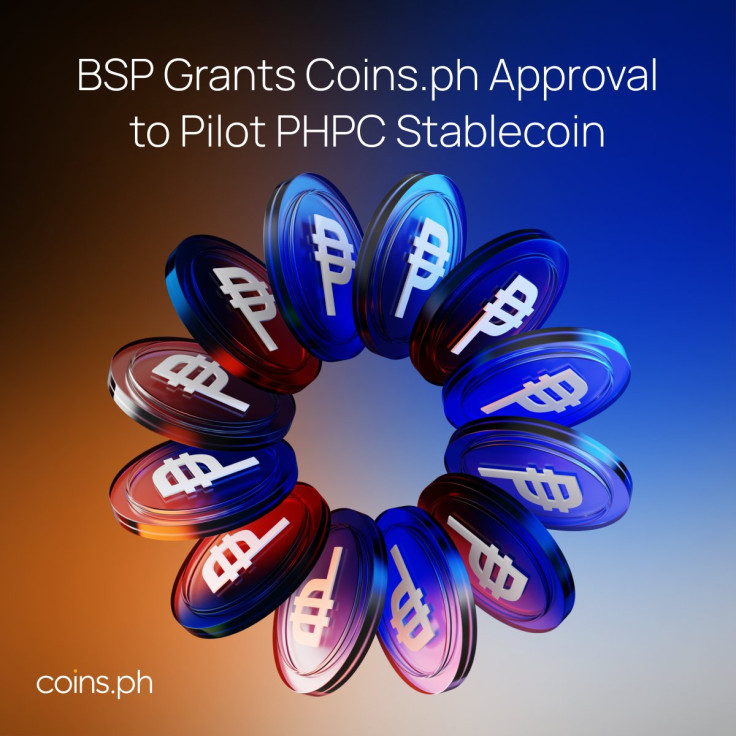Philippines' First Stablecoin Can Help Address Country's Remittance Issues, Provide Regulatory Clarity: Expert
KEY POINTS
- The BSP recently approved a pilot for the Philippines' first stablecoin, PHPC
- GMMG's Abello said stablecoins can help address international remittance denials
- He said the PHPC can also be a use case for online shopping
The Philippine central bank has approved the first stablecoin pilot in the country, marking a major milestone in the Southeast Asian nation's cryptocurrency sector. Should the project be a success, it could help solve the many issues faced by overseas Filipino workers (OFWs) who get their remittances denied through traditional channels and could also pave the way for more regulatory clarity in the country.
Cash remittances from international Filipino workers have been climbing steadily in recent years. Last year alone, remittances hit $33.49 billion compared to $32.54 billion in 2022, as per data from Statista. This suggests that OFW remittance can be a suitable use case for the country's first stablecoin, prominent Filipino investor and crypto market analyst Arlone "Paul" Abello told International Business Times.
However, there are still issues faced by OFWs in terms of traditional remittances. "There are more than 50% send/receive transactions denied daily in traditional remittance companies due to various reasons," he pointed out.
With the higher possibility of a stablecoin officially approved and regulated by the Bangko Sentral ng Pilipinas (BSP), issues related to remittances may finally be addressed, he said.
Last month, the BSP approved the proposed pilot of a Philippine Peso-pegged stablecoin called PHPC that was introduced by local cryptocurrency giant Coins.ph. For Abello, who is also the founder and CEO of blockchain and crypto mentoring and advocacy firm Global Miranda Miner Group (GMMG), Philippine stablecoins can pave the way for exploring use cases in various sectors.
Exciting times ahead! ✨
— Coins.ph (@coinsph) May 8, 2024
We just announced that Bangko Sentral ng Pilipinas (@BangkoSentral) has given the green light for https://t.co/ehQWvZk9FW to issue a peso-backed stablecoin, to be called PHPC! 🇵🇭
PHPC will be pegged 1:1 to the Philippine peso, marking a groundbreaking… pic.twitter.com/gMwRm5sEe9
Aside from the stablecoins possibly reducing or ultimately resolving remittance denials, the PHPC can also be used in other industries such as online shopping, Abello said.
Stablecoins, which are designed to maintain stable values as they are pegged to a specific traditional currency, are already making waves in e-commerce outside the country. The token's "stability" combines traditional finance and the innovative features of cryptocurrencies, but without the many burdens associated with bank transfers when making online purchases. The combination makes stablecoins a great alternative for both online shoppers and e-commerce merchants.
Abello also noted how a stablecoin can "provide regulatory clarity in its best level since the dawn of crypto in the Philippines."
"This initiative falls under the BSP's Regulatory Sandbox Framework, which is designed to enable the development and testing of emerging new technology to deliver financial products and services in a controlled environment," Coins.ph stated while announcing the pilot's approval.
Like many countries around the world, the Philippines' digital assets sector has yet to have an official regulatory framework. But a central bank-monitored stablecoin is a good start for a developing nation that seeks to take a bite from the burgeoning crypto industry.
A regulated token is quite important for the Philippines, Abello said, as it could help relieve companies from the feeling of "walking on eggshells" when they offer their crypto-related products. With the government's support, the PHPC can provide the "clearance" that the Philippine crypto sector needs for wider digital asset adoption, he said.
The PHPC will not transition to public implementation unless it completes the sandbox period. The BSP also has to conduct final evaluations once the pilot proves itself successful within the sandbox's standards before the PHPC can be promoted for public use.
The Philippines is taking one step at a time in transitioning into a solid crypto country. On the other hand, it has made strides in moving toward a more innovative financial environment. Blockchain analysis firm Chainalysis ranks the Philippines 6th overall in its 2023 Global Crypto Adoption Index, and is only behind the United States and Ukraine.
© Copyright IBTimes 2024. All rights reserved.




















